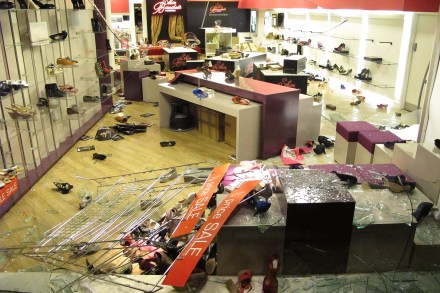May intervenes to restore order
Theresa May has banned an EDL march in Telford tomorrow, although the organisation will be allowed into the town to conduct a static demonstration. May has been a hive of hyperactivity since she returned from holiday, and this is yet another example of the government making a decisive gesture to amend for its perceived earlier indifference. It also looks like a strategic decision to contain that other unspoken working class resentment: immigration, and the hint of racial tension that it inspires from time to time. David Cameron was at pains yesterday to insist that the riots were a cultural issue, not a racial issue. He’s right. I’ve spent the last











